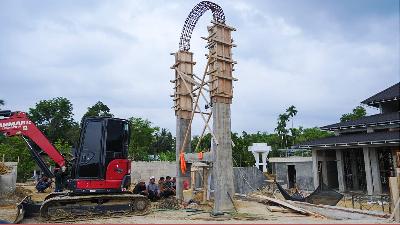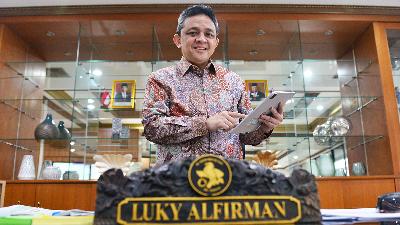For the Sake of Educational Standards in Pesantren
Monday, April 15, 2024
Many Islamic boarding schools are operating without permits. There needs to be standardization of these religious educational institutions.
arsip tempo : 174689141246.

ISLAMIC boarding schools, or pondok pesantren, that do not have permits are a serious problem that the government needs to address. A number of cases that have endangered students show the need for stricter oversight of the process of granting permits for these religious educational institutions. The Religious Affairs Ministry should not try to evade its responsibility for these abuses.
Pesantren operating without permits clearly ignores educational standards. And their leaders sometimes exploit their students. They are not transparent in the management of funds or activities. Moreover, there have been examples of other problems. Take the case of the sexual violence against six students at Pereng Al-Kahfi Islamic Boarding School in Semarang, Central Java. The perpetrator was the head of the school, Muhammad Anwar alias Bayu Aji Anwari, who was arrested by police on September 1, 2023. The school did not have a permit or meet the requirements laid down by the Religious Affairs Ministry.
The latest incident occurred at Tartilul Quran Al-Hanifiyyah Islamic Boarding School in Kediri, East Java. A student died following an assault by his seniors. This school also did not have a permit from the Religious Affairs Ministry. Because these boarding schools were operating without permits, the Religious Affairs Ministry claims that they did not come under its oversight. In other words, the ministry is doing nothing.
From the legal aspect, the regulations for the issuing of permits for Islamic boarding school are too lax. Article 5 Paragraph 2 of Law No. 18/2019 on Pesantren states that a pesantren can obtain a permit if it has a kiai, or religious scholar, and at least 15 students living in the school in dormitories or other accommodation. Compare this with the requirements for establishing a private school, which are far more numerous, such as having a curriculum, facilities, sources of funding and a sufficient number of teachers in line with the standards.
Although the requirements for obtaining a permit are lax, many Islamic boarding schools still operate without one. Of course, this is because the same regulation makes this possible. The Pesantren Law says that a pesantren must be established first before obtaining a permit from the government. This provision must be changed, in order to improve the management of pesantren. Managers must obtain a permit before starting operations. And the rules for establishing a pesantren do not specify sanctions for those breaching them.
Matters are made worse by the passive stance of the Religious Affairs Ministry. There is no effort to control, monitor or put things right in Islamic boarding schools that are operating despite not having permits. The Islamic Education Directorate-General in the ministry seems to have completely washed its hands of the matter. As a result, there is an increasing number of pesantren operating without permits.
Although they have an emphasis on religion, Islamic boarding schools are still educational institutions and should be strictly regulated. This is to ensure that the students obtain the quality education that is their right. And in the interests of educational standards, the management of pesantren should be brought under the ministry of education, culture, research and technology.
This would ensure that pesantren meet national educational standards. Pesantren would then not be able to exploit their students and would receive support and satisfactory oversight. Under the Education Ministry, Islamic boarding schools could also play a role promoting education that is inclusive, transparent and of good quality for all students.











